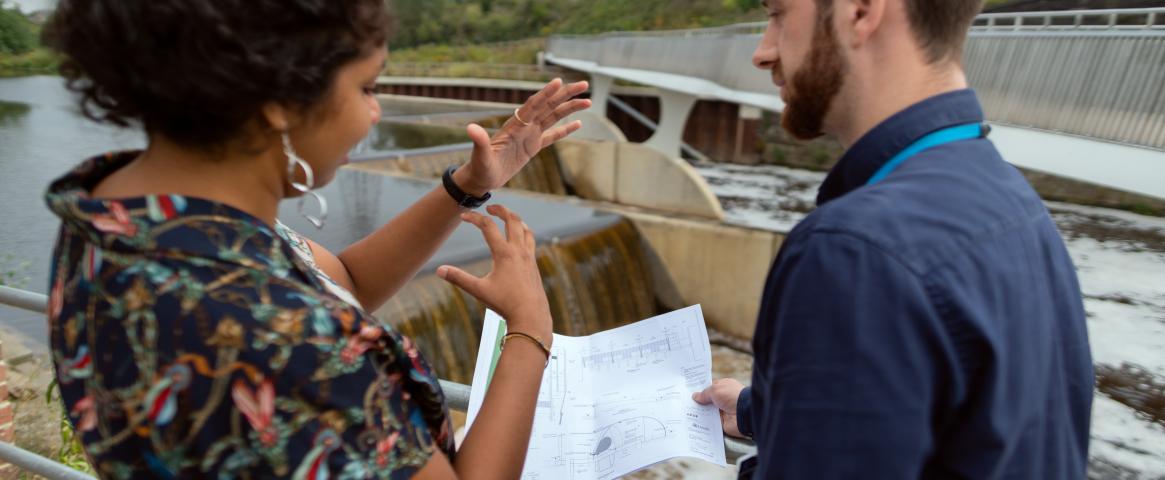By Jacqueline Aenlle. Mentored and edited by Lauren Wolf.
Nearly half of researchers responding to a recent survey said that politicization of science has made them lose interest in communicating with the media.
But for leadership studies researcher Louis Nadelson, those results from an Arizona State University-led study aren’t completely surprising. “I know many scientists who have withdrawn from communicating science with the public due to reactions to science that are irrational,” he says. “It’s a challenge, and we have a lot of work to do to resolve these issues. Political views have led to a diversity of beliefs and ideas about science that have limited people’s understanding of science, and therefore their trust in science.”
Social science researchers who have been studying the issue gathered at a Feb. 19 workshop during the American Association for the Advancement of Science (AAAS) annual meeting to discuss solutions to the problem. Trust in science, the dangers of misinformation, underrepresentation of women in science, and how to prepare scientists to interact with various audiences were key topics.
In the United States, one area of science that has become politicized is the COVID-19 pandemic, with government leaders taking sides over protective strategies such as masking and therapeutic ones such as vaccines. Surveys conducted by the journals Nature and Science show that some scientists have seen an uptick in harassment in the past few years. At the same time, other polls have shown that public trust in science has declined. For instance, between November 2020 and December 2021, there has been a 7% increase in mistrust of scientists by adults in the U.S., according to a report from the Pew Research Center in Washington D.C.
Taking the temperature
A team of researchers from Arizona State University’s Center for Science, Technology and Environmental Policy Studies surveyed more than 3,000 scientists starting in June 2020 about their experiences with communicating scientific results to general audiences. Through this Scientist Opinion Panel Survey (SciOps) program, they took the scientists’ temperature about whether they wanted to continue communicating with the public, as well as collecting “tangible techniques” for effective communication, says SciOps director Eric Welch.
Though the SciOps survey found that 47% of scientists reported losing interest in communicating with the media about science, it is not for lack of training or self-efficacy. Sixty-three percent of scientists surveyed were very confident in conducting successful interviews with the media about their research.
Among those who reported being highly confident, most — 72% — were men. This finding isn’t necessarily surprising, because men have traditionally taken on a higher level of “leader identity” than women, says Nadelson, chair of the leadership studies department at University of Central Arkansas.
One of the many possible reasons is that women haven’t always had leadership role models, says Angeliki Dimitriadi, a research fellow at the Global Public Policy Institute in Berlin. She says increasing the number of female role models can help address the continued underrepresentation of women in science.
“Science underscores everything we do, so we want to make sure it reaches the public,” says SciOps team member and journalism lecturer Kristy Roschke. Increasing the number of scientists from all walks of life who communicate about their research can help with that goal.
Possible solutions
Scientists looking to improve their communication skills can use a number of strategies. Roschke recommends preparation of an elevator pitch before meeting with a journalist, as a way to succinctly deliver the intended message and help reduce misunderstanding. Exploring what type of outlet a journalist works for before meeting with them can help scientists tailor their message, she says. And it can even help them determine whether a different scientist might be a more appropriate information source.
As research continues to explore the level of public trust in science and media, more specific recommendations will arise to better guide science communicators.
“Trust in science and science communication are a challenge,” Nadelson says. “And we have a lot of work to do to resolve these issues.”
Jacqueline Aenlle was a doctoral candidate in agricultural communications at the University of Florida while working on this story. She has since accepted a position as an assistant professor of agricultural communications and journalism at Kansas State University. Reach her at jv.aenlle@gmail.com, follow her on Twitter @FromUrbantoAg, and view her digital portfolio..
Photo: Some researchers say they have lost interest in communicating about their science. Credit: @thisisengineering/Unsplash


